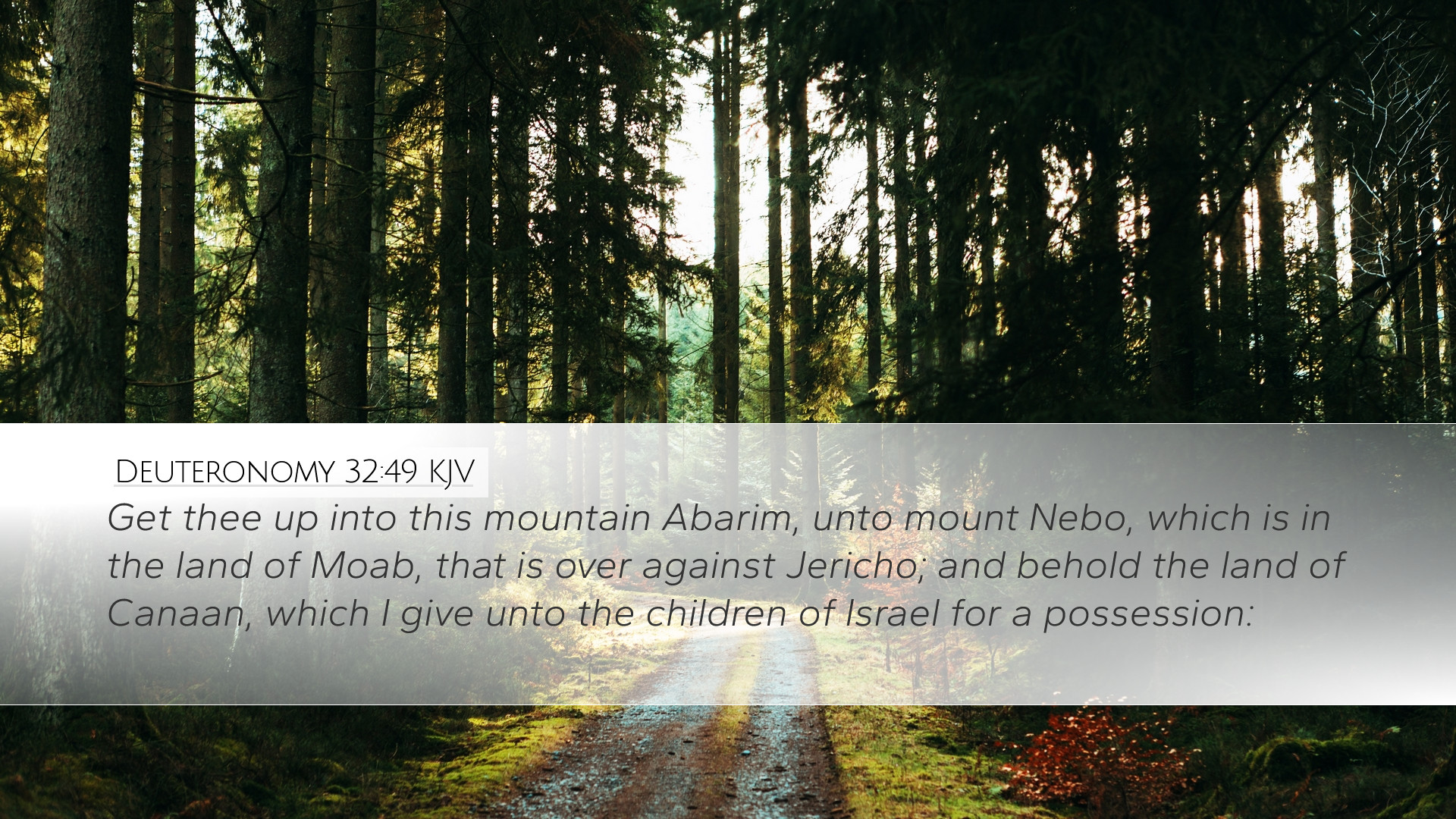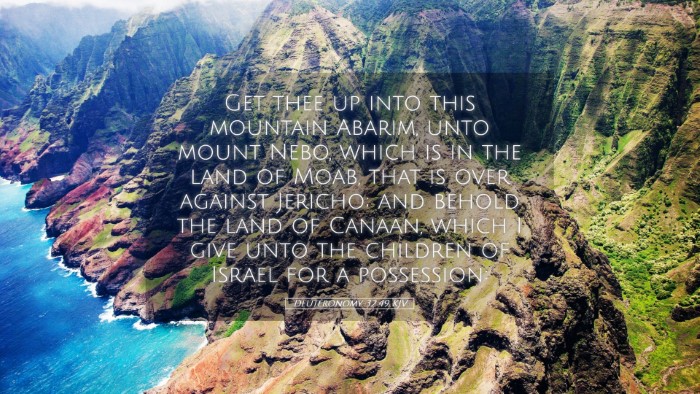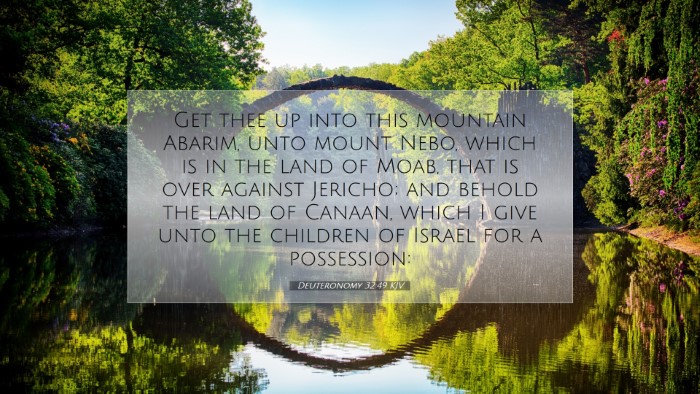Commentary on Deuteronomy 32:49
In Deuteronomy 32:49, we find a significant moment in the life of Moses as God commands him to ascend Mount Nebo to view the Promised Land. The verse states:
"Get thee up into this mountain Abarim, unto Mount Nebo, which is in the land of Moab, that is over against Jericho; and behold the land of Canaan, which I give unto the children of Israel for a possession."
Contextual Background
Moses has led the Israelites through the wilderness for forty years, guiding them toward the Promised Land. However, due to disobedience, he is not permitted to enter. This moment occurs within the larger context of Moses’ final words and the retrospective encapsulation of Israel's journey and covenant with God.
Theological Implications
This verse embodies critical theological themes such as leadership, divine justice, and the relationship between God and His people. Each commentary highlights the gravity of Moses' assignment and the looming passing of leadership.
Insights from Matthew Henry
Matthew Henry reflects on the nature of Moses' ascent to Mount Nebo as both a privilege and a profound loss. His commentary emphasizes:
- The faithfulness of God: God remains faithful to His covenant despite human failure.
- The passing of leadership: Moses' inability to enter Canaan serves as a reminder of the consequences of disobedience.
- The panoramic view of God’s promises: This moment is bittersweet; while Moses sees the land, he cannot partake in its inheritance.
Insights from Albert Barnes
Albert Barnes offers a detailed analysis, underscoring the geographical and symbolic significance of Mount Nebo:
- Symbolism of the mountain: Ascending signifies elevation in spiritual position, yet it also serves as a point of separation between him and the people.
- Geographical significance: Nebo's perspective offers Moses a comprehensive view of the promise fulfilled, accentuating God’s faithfulness through the geographical lens.
- Preparation for succession: The verse hints at God’s plan for Joshua's leadership and reinforces the importance of generational transition in God’s community.
Insights from Adam Clarke
Adam Clarke discusses the emotional weight of this moment in Moses' life, highlighting:
- The melancholy of unfulfilled promise: Moses' longing to enter the land underscores the human desire for fulfillment in God's promises.
- Investigation of the land: This survey serves not only to satisfy Moses’ desire but also to confirm God’s fidelity to His word as evidenced in the land of Canaan.
- Vision versus participation: Clarke emphasizes the distinction between seeing the blessings of God and actively participating in them, pointing to larger themes of faith and trust.
Practical Applications
For pastors and theologians, Deuteronomy 32:49 provides poignant lessons:
- Leadership and Accountability: The consequences of Moses’ actions teach us that leaders must uphold God’s commands, demonstrated in this pivotal moment.
- Faithfulness of God: Reminding congregations that though human leaders may falter, God’s promises remain, instilling hope and faith within the community.
- The importance of legacy: Understanding that our actions and decisions will echo in future generations establishes a vital connection between past, present, and future.
Conclusion
In summary, Deuteronomy 32:49 is a powerful verse that captures the essence of God's relationship with His people, the enduring nature of His promises, and the often painful realities of leadership. As Moses views the land, he embodies the journey of faith, emphasizing trust in God’s plans even when they differ from human expectation. Scholars and leaders are encouraged to reflect on these layers of meaning, making this scripture a profound source of inspiration and instruction for their own ministries.


